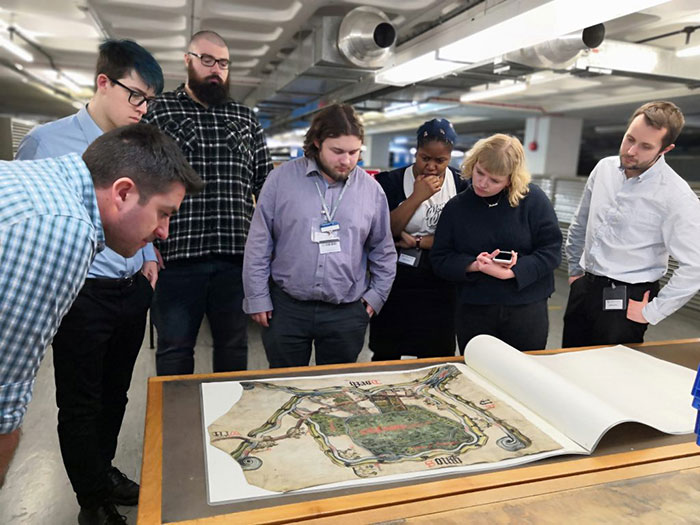As the Bridging the Digital Gap trainee at University College London, I was asked to speak on a panel at this year’s Archives and Records Association (ARA) conference about my experience of and thoughts about this traineeship. Enthusiastically I accepted the offer and embarked on a completely new experience. I delivered a presentation where I highlighted the diversity of the trainees’ work and the need for digital skills in archives, as well as reflecting upon where this traineeship will lead us.
The Bridging the Digital Gap traineeship aims to engage new people with the archives profession and build digital skills across the sector. None of us in the current cohort comes from a traditional archival background, yet here we are, trying to solve the digital problem faced by archives the world over.
During the traineeship, I expected to learn all the theory and rules around digital preservation. I’ve found that you can learn all of this, but putting it into practice is another story. We have been learning by doing, each of us working on different projects within our host institutions. Alongside this, a Moodle course run by The National Archives has covered some of the more theoretical material relating to digital preservation.

Trainees tour the repositories at The National Archives
Online, we have all been studying the same content, but in reality we have all put very different parts of this learning into practice. The fact is, there is not one homogenous set of instructions or answers to the digital preservation challenge we are currently facing.
It is a positive thing for the archives profession if people like us come in and attempt to tackle digital preservation. We are not set in the traditional ways of the archive, and are probably more likely to jump in and take chances, trying out new methods and technologies. Having said that, it is important that we have an understanding of traditional archival practice, as this forms the basis of good digital preservation in archives. It is also helpful when it comes to working with archivists. If digital people have a better understanding of what archivists do, and vice versa, both can work together and enhance each other’s abilities.
The fact is, traineeships such as this are important as a way to bring new people with digital skills into the archives sector. The question is, where do people like us fit into a profession that traditionally requires us to have certain qualifications? What exactly are we being trained for when digital preservation is so multifaceted and varied across the sector?
A significant element of the traineeship is developing skills and trying new things. Speaking at the ARA conference is one of several new experiences I have had since joining the Bridging the Digital Gap cohort, and I encourage any future trainees to embrace these opportunities when they arise, and to give anything a go! Certain things may seem incredibly daunting at first, but once you have completed them, you will feel an enormous sense of achievement.